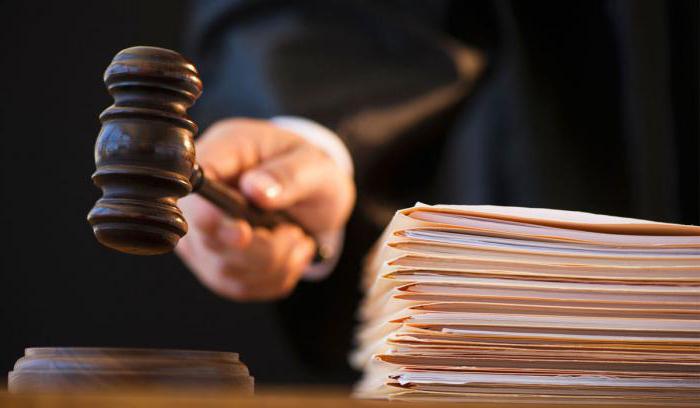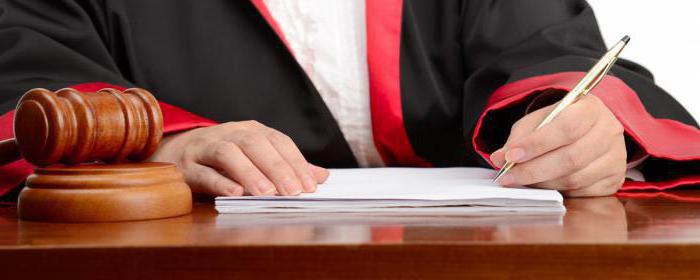Return of the statement of claim in accordance with Art. 135 Code of Civil Procedure - the action of the court in violation of the plaintiff of a number of provisions of the law when filing a lawsuit. What is considered the basis for the return of the claim and what measures can the plaintiff take to defend himself? What are the nuances?
Claim Procedure
Legal proceedings are subject to certain rules. Having received the materials, the court is obliged to check whether they comply with the law in order to open proceedings on them.
Art. 135 Code of Civil Procedure indicates the reasons for the return of the claim. In most cases, it is associated with formal violations. Having eliminated them, the applicant has the right to appeal to the court again with the same requests and on the same grounds.

But there are also reasons under which the opening of proceedings is impossible and the adoption of a claim for proceedings is considered a serious violation of the rights of citizens and organizations.
What violations are we talking about?
In Art. 135 Code of Civil Procedure contains the main list of cases of return of the statement of claim. What does the law pay attention to?
- violation of the rules of jurisdiction;
- the pre-trial procedure for resolving disputes has not been completed;
- the plaintiff was incapable;
- the author of the application does not have the authority to file a claim with the court and the absence of a signature on the claim;
- production has already been opened for the same requirements between the same persons and for the same reasons;
- the plaintiff asked the court to return the claim, and the judge had not yet managed to open the proceedings;
- earlier the claim was left without movement, and the plaintiff did not eliminate its shortcomings in the allotted time.
Jurisdiction Rules
Jurisdiction - the competence of the court in the settlement of disputes. Justices of the peace are adjudicated by magistrates, others by district courts, and third by regional, regional supreme and republican courts.

In addition, there is an arbitration system of judicial proceedings. A law within the framework of a single judicial system can give a choice of which court to appeal to. For example, the recipient of the alimony chooses the option of applying at the place of residence of the defendant or in the area of his residence.
Violations of the rules of jurisdiction alone are not enough to reverse the decision, but the judges monitor the implementation of these requirements, because no one wants to do extra work. And by the way, returning a statement of claim only on this occasion is not uncommon.
Pre-trial dispute resolution
The law may provide for pre-trial resolution of conflicts. Today, as a rule, this is the submission of a claim within the time specified by law or by agreement of the parties.
Copies of documents with evidence of their direction or postal receipts are attached to the claim.
Incapacity
Disability limits the right to sue yourself. An exception is the request of such a person to cancel the decision on his legal incapacity.
In all other cases, Art. 135 Code of Civil Procedure of the Russian Federation allows you to file a lawsuit on behalf of such a person only to his guardian. The decision of the guardianship authority on the appointment of a guardian is attached to the application. It gives the right to represent the interests of the legally incompetent.
Confusion with the sender
Art. 135 Code of Civil Procedure of the Russian Federation prohibits starting proceedings in a case in which it is not clear who filed the lawsuit. If the application is submitted on behalf of a person by someone outsider, a power of attorney is attached (optionally notarized).

The powers of attorney are necessarily stipulated in the power of attorney: forwarding the lawsuit to the court, the right to sign on court documents, appeals, otherwise the lawsuit simply will not be accepted with such a power of attorney.
Art. 54 Code of Civil Procedure obliges to enter a number of powers directly into the power of attorney so that the representative can use them.
Lack of signature. For example, novice lawyers put the date, last name, first name, middle name, but forget about the signature.Those who file claims through the office know that the secretaries verify the signature, if the documents are submitted by mail, the lack of a signature leads to the return of the statement of claim.
A similar lawsuit has already been filed.
A claim shall not be accepted if proceedings were previously opened on the same requirements and grounds, between the same persons. For example, citizen A owes money to citizen B, which is confirmed by a receipt. A lawsuit has been filed to recover money, and the case is being considered, and the court has not yet decided it.
The fact of debt - the basis for the claim, the request to recover - the requirements. This means that while the process is underway, A has no right to file a new lawsuit in connection with the same receipt. If there is another receipt, then Art. 135 Code of Civil Procedure is no longer preventing A from sending another statement to the court in connection with the debt on another receipt.
Plaintiff's request to return the claim
The plaintiff has the right to ask him to return the claim. He is not obliged to explain the reason for his act. It is enough only a statement signed by his hand or representative, if only he has such powers according to the power of attorney.

The only condition is that the judge has not yet decided on the opening of the case, and it has not been entered into the electronic automated system “Justice”. In this case, the plaintiff must be asked to terminate the proceedings, which does not prohibit going to court with the same lawsuit later. A statement of rejection, by contrast, discourages re-filing a lawsuit.
Application left motionless
Articles 131 and 132 of the Code of Civil Procedure contain the basic rules affecting the execution of a claim. Deficiencies are associated either with the content or with the design. Their identification gives the judge the right to suspend proceedings. An example regarding the content: the prosecutor is obliged to justify the reasons for going to court in order to protect the rights of a citizen (why the latter needs the help of the prosecutor's office). The lack of clear justification obliges, in turn, the judge to leave the lawsuit motionless for a start.

For example, a receipt confirming payment of state duty was not attached to the lawsuit.
The judge makes a decision, which indicates that there is not enough receipt, and specifies what period of time is given to bring it to court. Another option is not enough copies.
Some violations occur due to citizens' ignorance of the law, its misunderstanding, others - due to inattention. Even experienced lawyers make such mistakes.
Judges give an average of two weeks to rectify deficiencies in applications. The term is counted from the moment the court makes the determination. In fact, there is not enough time, since it takes several days to send documents from the court, and even more time to deliver to the addressee.
The plaintiff or the applicant, who did not correct the defects in time, the judge returns the statement of claim with all the documents attached to it.
Return procedure
Materials from the office are transferred to the assistant judge, who makes the main technical decisions. Then a determination is made. The law obliges the judge to keep within 5 days from the receipt of the documents in order to make a decision on them. In practice, due to the workload of the ships, papers are sent in about two weeks.
Right to complaint
The applicant or the plaintiff, who believes that leaving the claim without motion is unlawful, has the right to file a private complaint. In the comments in Art. 135 Code of Civil Procedure, it is noted that the 15-day period for a complaint is counted from the day when it became known about the court decision. Most often this is the day they are received in the mail.

If the reason for the return of the application is difficulties that were not resolved, then the complaint is not filed, since the law allows you to appeal the decision to leave.
Some lawyers prefer not to waste time on an appeal, but to file a new lawsuit. So faster and less risk to set the judge against himself. Moreover, with a new filing after returning, there is no need to pay the fee again. The old receipt is valid for a year.
Despite the regularly occurring nuances and disputes, judicial practice under Art.135 Code of Civil Procedure of the Russian Federation is not as numerous as it could be.
However, there is one circumstance that compels the applicants to go to the court of appeal - the limitation period. If a lawsuit is filed in court on the last day, then after its return there is no time for a new filing. The return of the claim is not considered a good reason for missing the deadline. Some judges go on a trick, persuading uninformed citizens not to go on appeal, and file a lawsuit again, knowing that then there will be no chance to defend their rights.